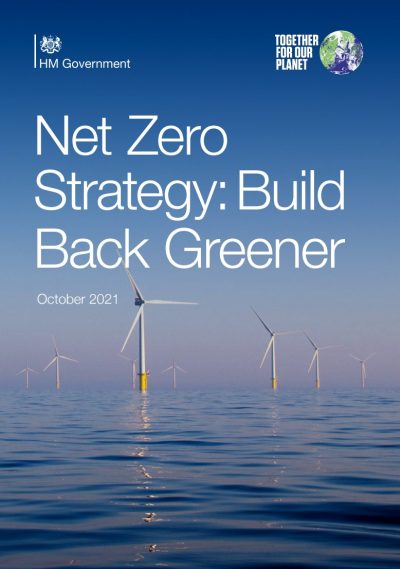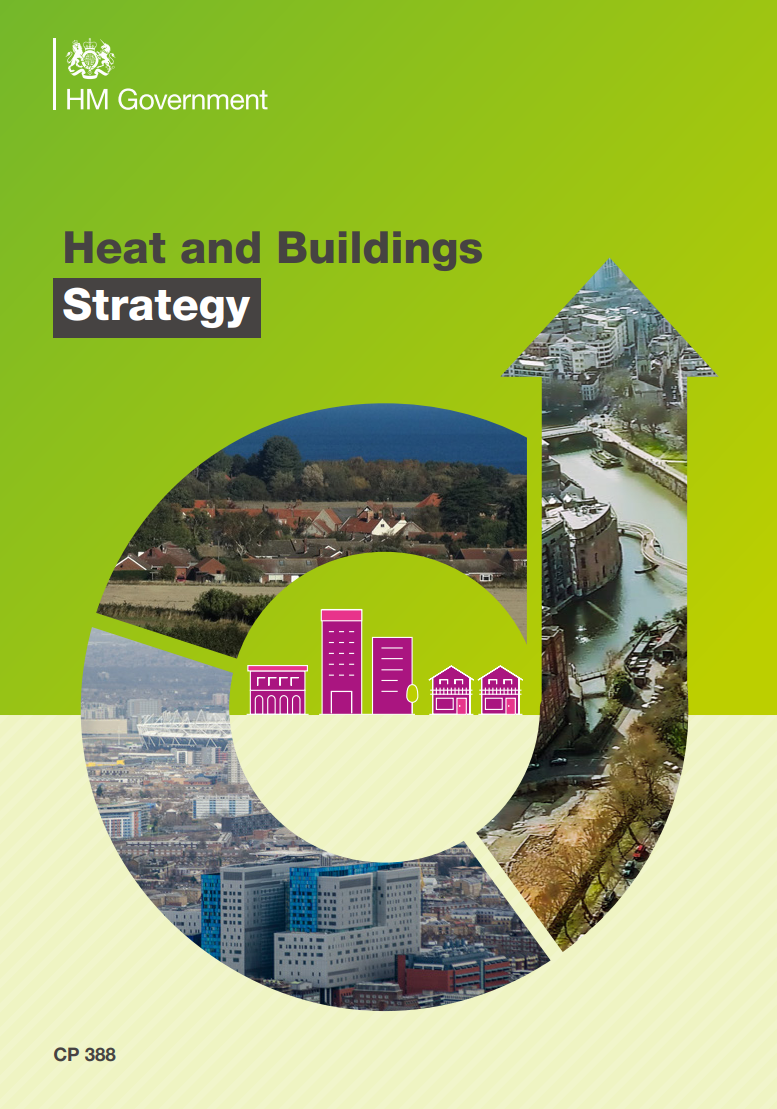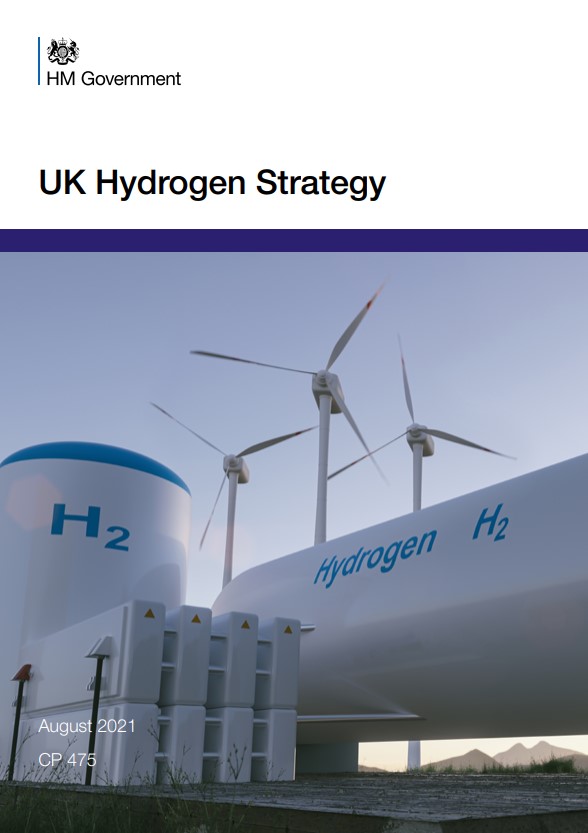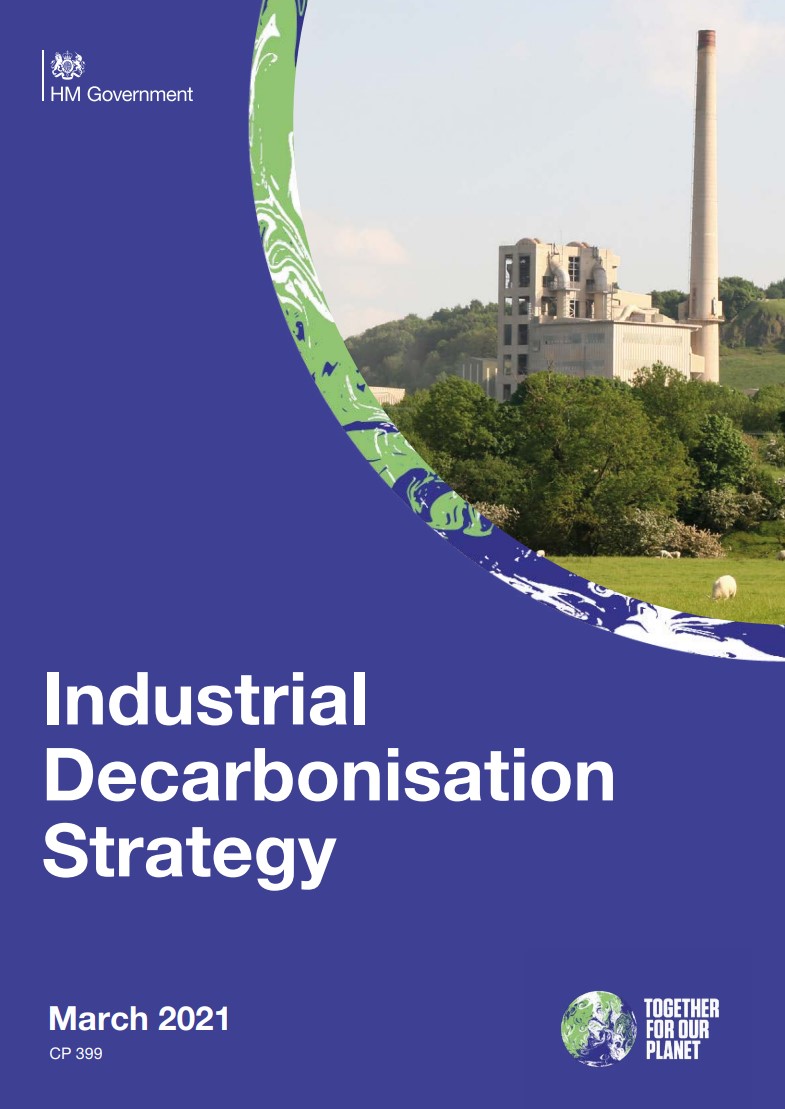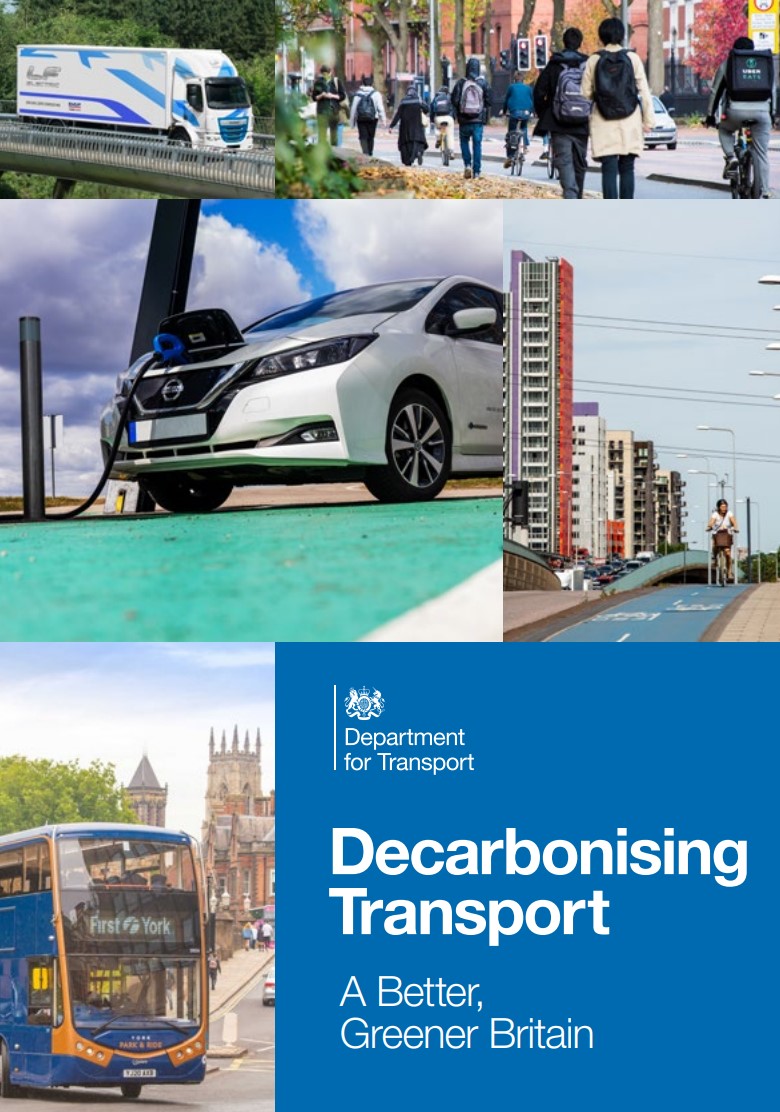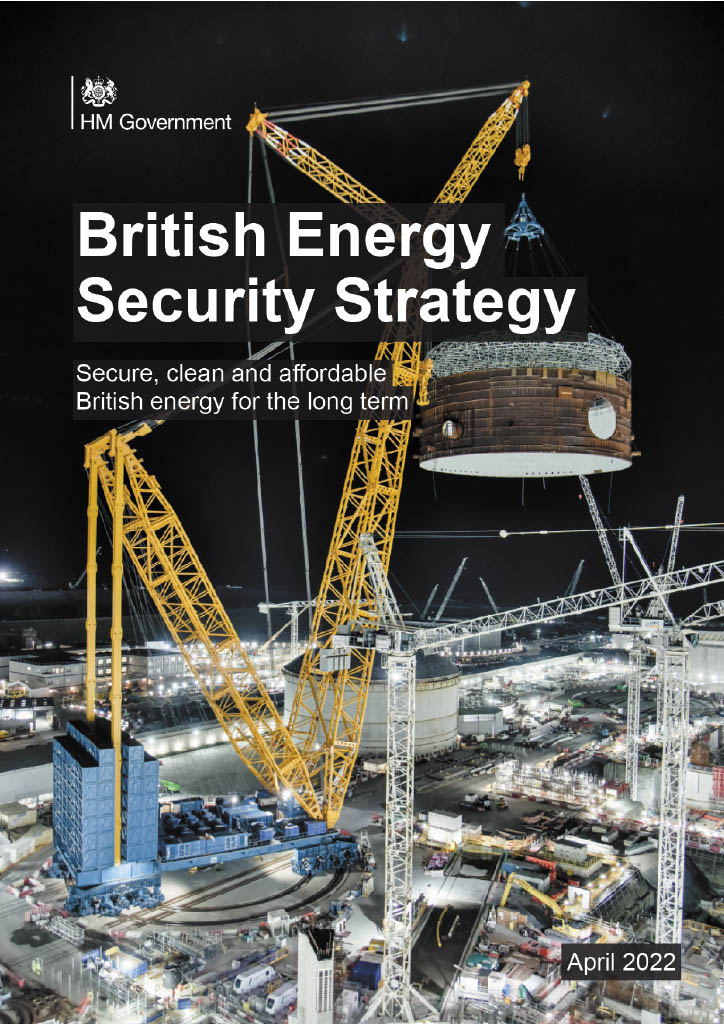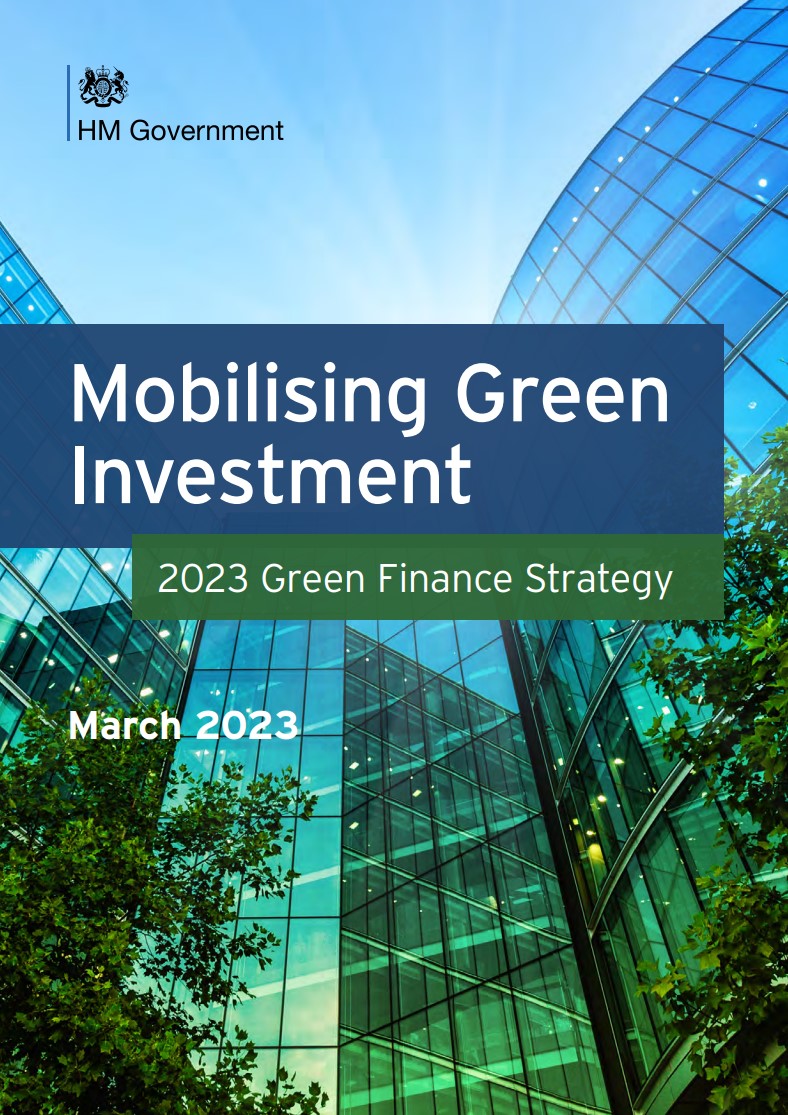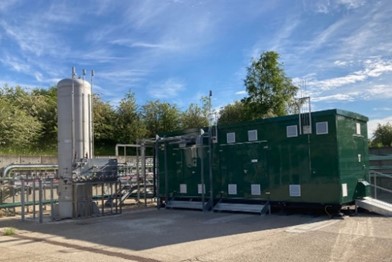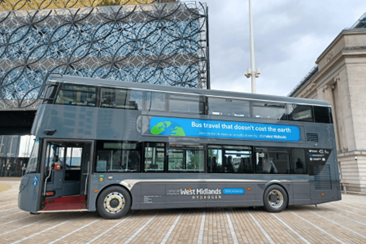End users
Understanding hydrogen end use
A guide to supporting hydrogen demand for Local Authorities and local leaders
01 Importance
Local Authorities are key stakeholders to enabling the development for net zero including supporting and drafting policies and acting as local coordinators for people and business to use hydrogen. In the Midlands, many companies are positioning themselves to supply hydrogen to end-users.
The Midlands Engine Hydrogen Technologies Strategy describes how local stakeholders, including Local Authorities, can support the UK’s hydrogen ambitions, by promoting a transition away from fossil fuels in power generation, transport, industry and heating.
Activities
Potential activities which Local Authorities can support include:
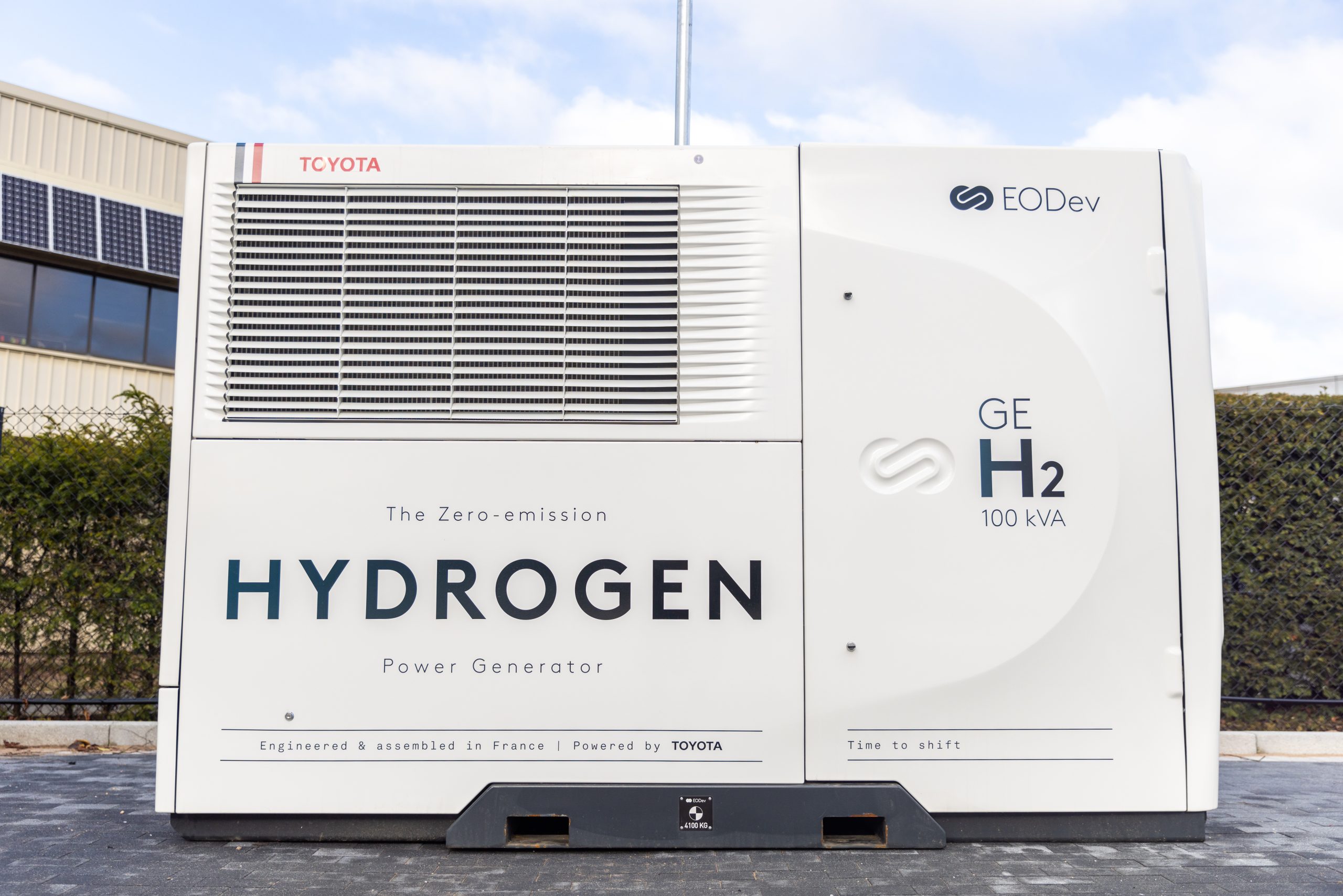
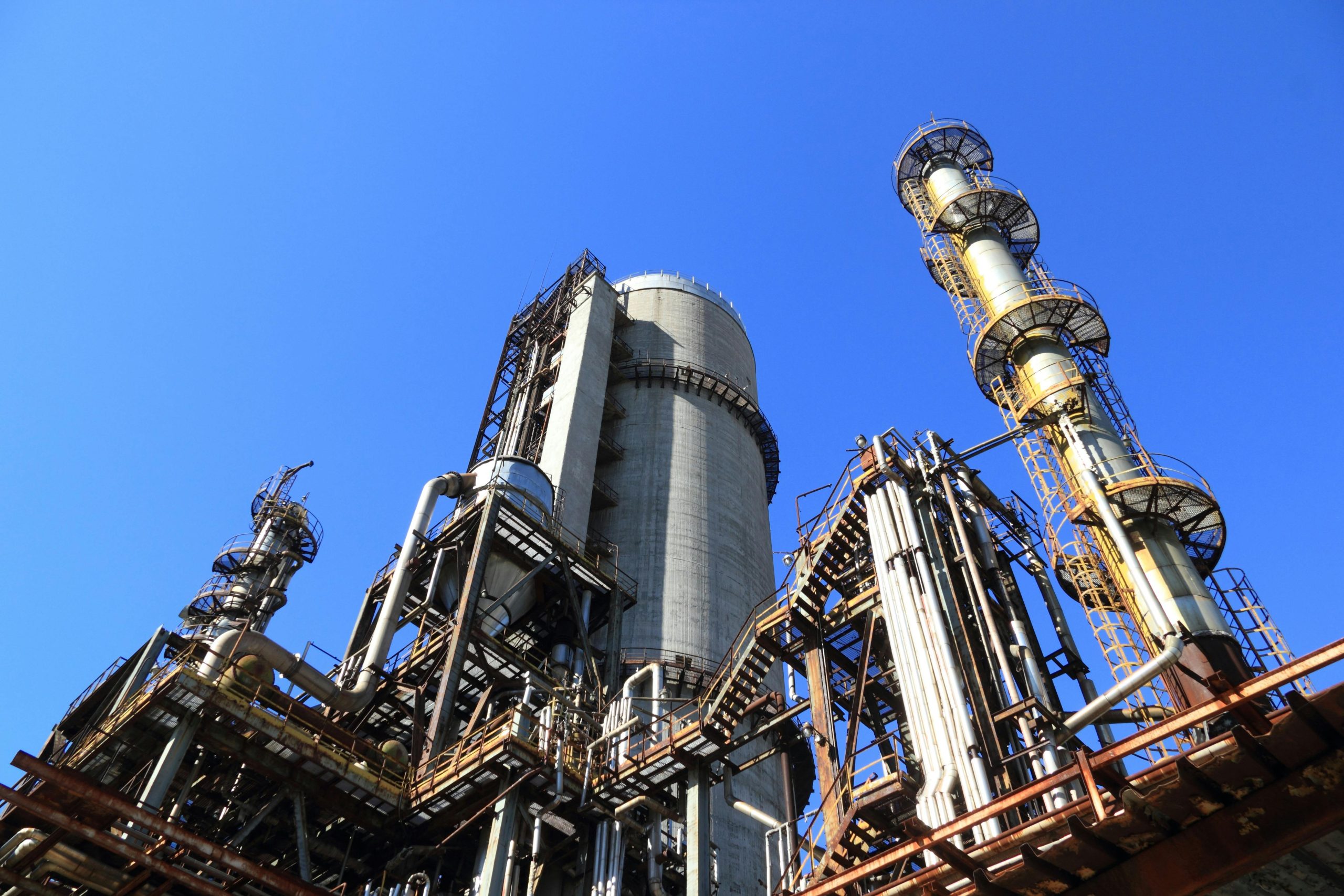
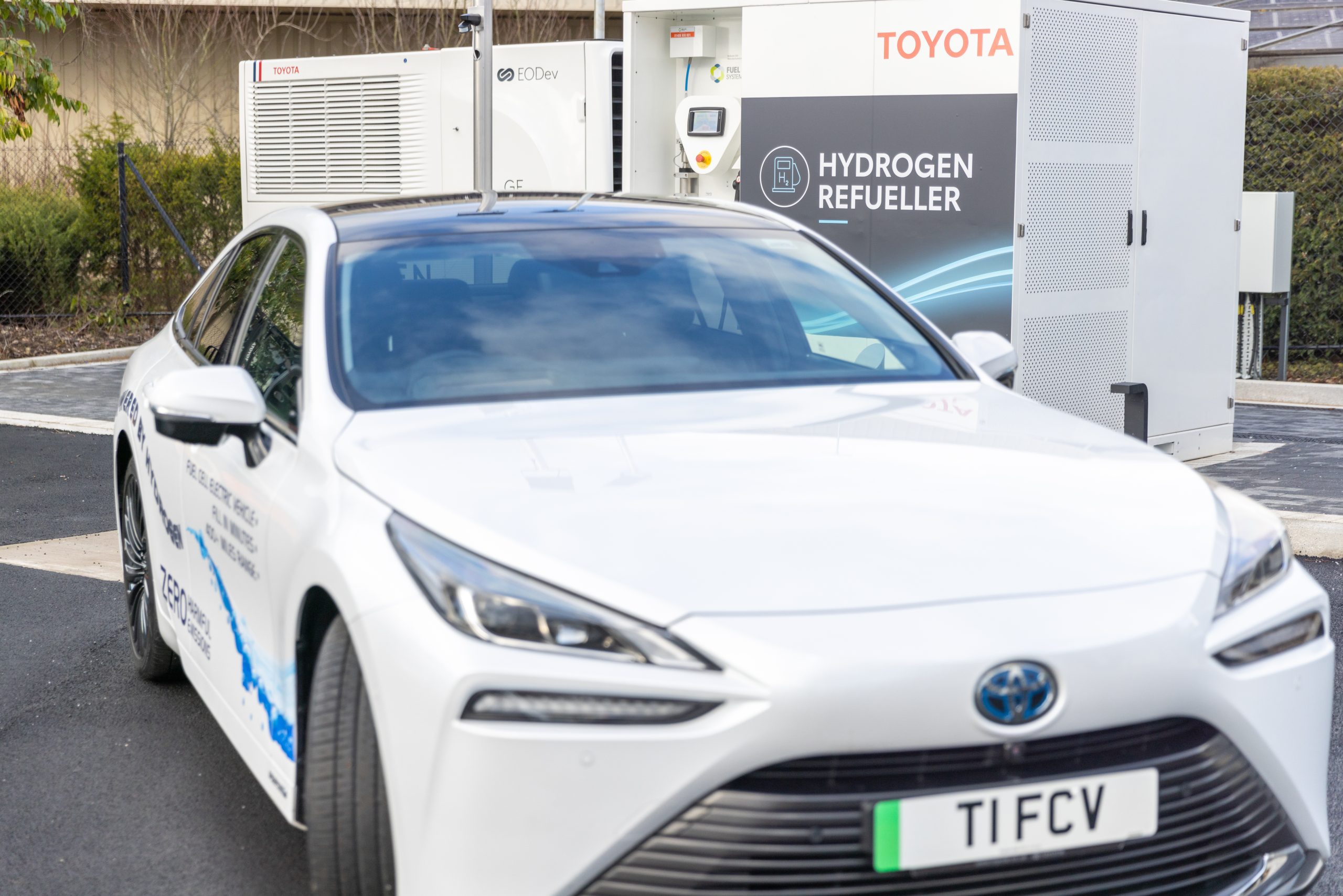
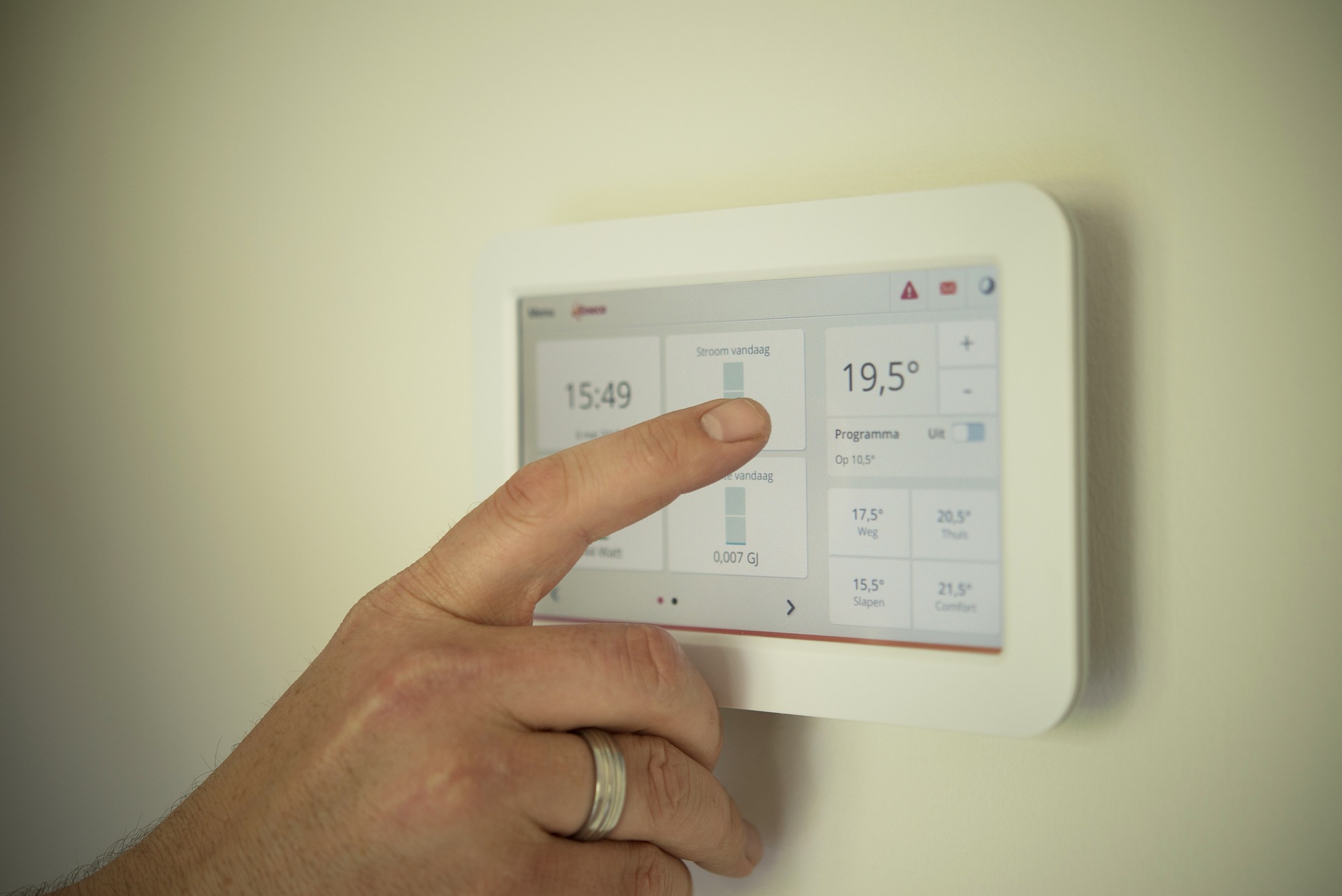
02 Usage
How can hydrogen be used?
Hydrogen is used as a fuel to produce power and heat for transport and stationary applications. It can be used as the only form of fuel, or it can be mixed with other fuels in different percentages with natural gas or diesel. Power generation systems such as fuel cells, combustion turbines or boilers can be used to convert energy needed from hydrogen to heat and power.
Hydrogen fuel cells
Fuel cells use electrochemical reactions to change chemical energy in hydrogen to electricity and heat. There are different types of fuel cells that are produced, with many uses including in laptops, vehicles and backup generators.
Low temperature fuel cells can only handle highly pure hydrogen whilst high temperature fuel cells can handle impure hydrogen and a mix of fuels. Fuel cells with pure hydrogen have zero emissions and give water as a byproduct.
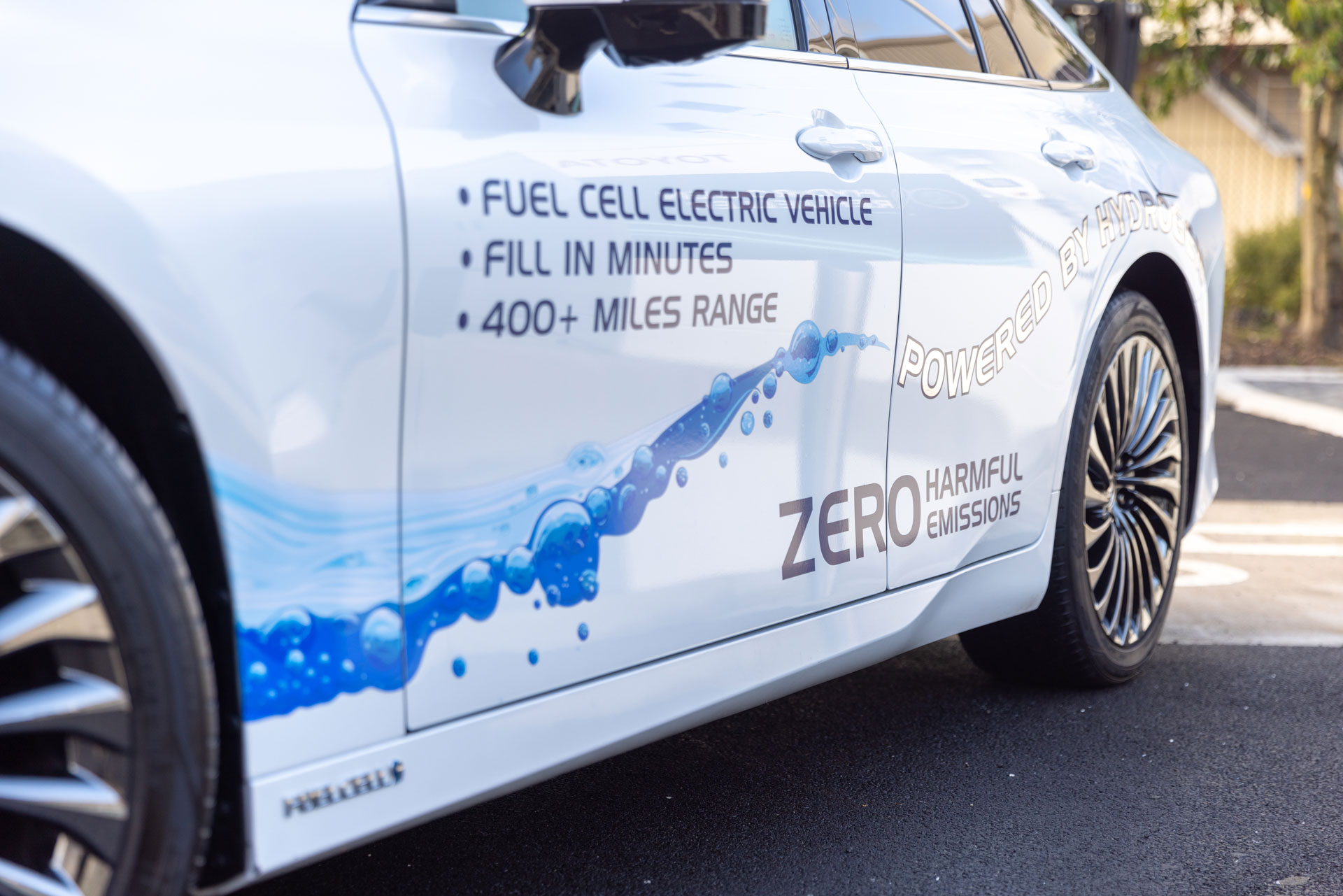
Combustion devices
Combustion devices essentially burn hydrogen to release energy. Companies like Ulemco, JCB, Rolls Royce, Worcester Bosch, and Baxi are advancing hydrogen combustion systems for vehicles, power plants, and furnaces, offering a zero-carbon alternative.
Dual-fuel systems mix hydrogen with existing fuels, reducing emissions. Ongoing trials aim to produce 100% hydrogen engines, turbines, and boilers for cleaner energy solutions in different applications, from construction vehicles to aviation, marking a significant step towards decarbonisation.
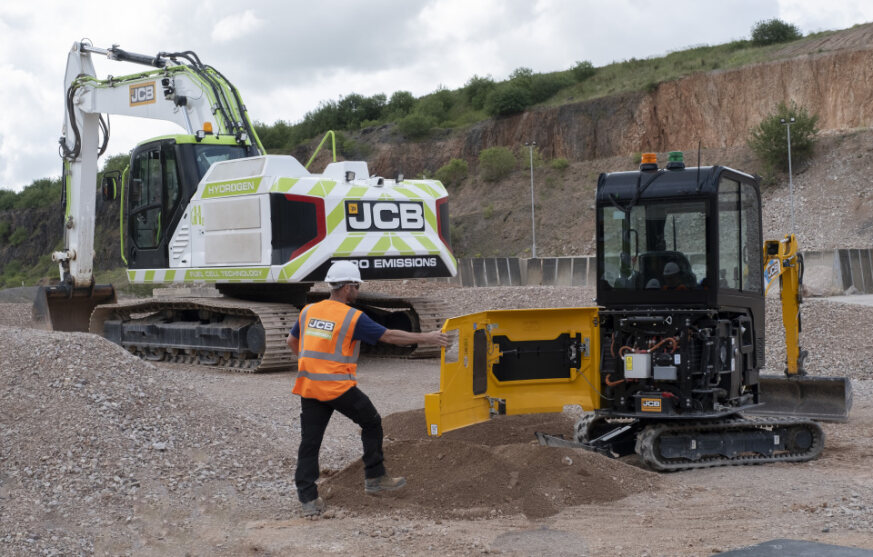
Applications of different types of fuel cells
Pure hydrogen
Types of fuel cells
Applications
These fuel cells are suitable for Stationary Power and Transport which do not require equipment retrofit/refurbishment (images to accompany)
Impure/mix hydrogen
Types of fuel cells
Applications
These more impure fuel cells are usually used in heavy duty sectors like Combined Heat Power, Carbon Capture and Transport and they require equipment refurbishment. (images to accompany)
04 Opportunities
Local Authorities in the Midlands have several opportunities to push decarbonisation initiatives by driving strategic hydrogen investments. The sectors that will benefit the most are transport and industry which cause about 67% of all emissions in the Midlands: 33.4% and 32.5% (Midlands Engine, 2021).
A recent Midlands Hydrogen Rail Study looked at the hydrogen rail opportunities across the Midlands. This region hosts the UK’s largest rail industry hub including key battery and hydrogen rolling stock developers. The report identified four routes that seem to have an appropriate blend of factors for a hydrogen train trial in a commercial setting, utilising the existing hydrogen supply chain in the region
Apart from these, hydrogen for heating is another sector which could potentially demand large scale hydrogen. By 2026, the UK government plans to decide whether, and if so how, hydrogen will contribute to heating decarbonisation. The National Infrastructure Commission Review 2023 found there was significant uncertainty in the future costs and performance of heat pumps and hydrogen boilers. To address this, it recommended running a trial to supply hydrogen to at least 10,000 homes. However, in the second National Infrastructure Assessment, the Commission recommended the government should not support the rollout of hydrogen heating. A planned trial of hydrogen in Redcar did not proceed, as the main source of hydrogen supply was not available in time.
Local Authorities need to stay informed and take part in shaping local policies. As an important influencer in the region, Local Authorities should collaborate with organisations such as the Energy Research Accelerator (ERA) and other academic and industry researchers. This will be useful to support initiatives for alternative energy solutions.
Potential Influence of Local Authorities in Midlands hydrogen market
Hydrogen end-use in the Midlands
05 Support
How can Local Authorities support potential end users of hydrogen?
Hydrogen promises to be a significant contributor to the future fuels mix for both domestic and commercial consumers. Local Authority leadership must look to promote and enable a transition which ensures sustainability and wellbeing, future proof services and infrastructure as well as an attractive ecosystem for retention of existing industries and sustainable growth.
Considerations for Local Authorities
Creating a hydrogen vision and strategy
for the region based on credible evidence which lays out strategic objectives for hydrogen transport and storage and promotes regional alignment.
Supporting existing and evolving hydrogen clusters
in the region through local and regional legislations and strategies.
Leading by example
in utilising hydrogen in the decarbonisation of council assets and operations.
Supporting local industry and supply chains
to develop components required for hydrogen storage and transport systems.
Identifying land for hydrogen refuelling infrastructure
Local Authorities can identify plots of land within their region for hydrogen refuelling.
Working with the local industry to identify opportunities for hydrogen off-take
This can be for hydrogen use to displace natural gas in industry or hydrogen refuelling for vehicles.
Promote hydrogen for transport activity
in the Midlands, showcasing the region as the heartland for UK hydrogen transport systems and infrastructure development.
Setting up virtual hubs, regular events and regional taskforces
to help foster partnerships with the private sector.
Understanding the hydrogen supply and demand potential
within the authorities’ boundaries and working with neighbouring authorities to create supply chain synergies and investment cases.
